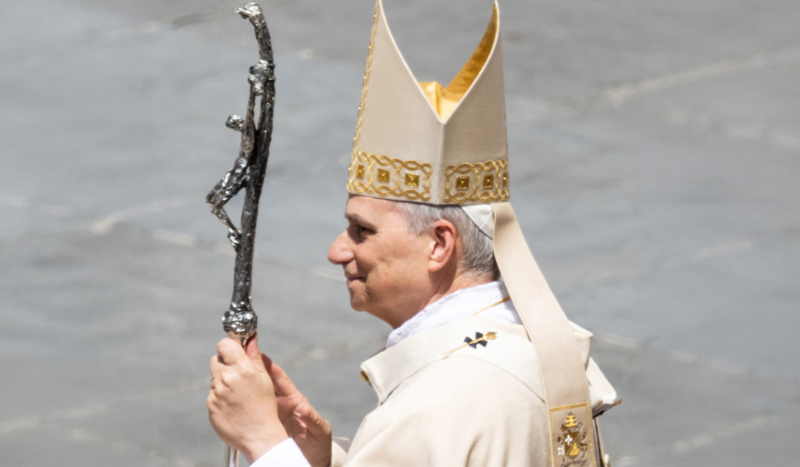
Catholic Church England and Wales / Flickr
In the Angelus address Pope Leo XIV made June 22, on the Solemnity of the Most Holy Body and Blood of Christ, Corpus Christi, the Pontiff reflected on both the need for peace in the Middle East and the significance of the miracle of the loaves and fishes.
“Alarming news continues to emerge from the Middle East, especially from Iran,” the Pontiff said. “Against this tragic backdrop, which includes Israel and Palestine, people’s daily suffering, especially in Gaza and the other territories, where the need for adequate humanitarian aid is becoming increasingly urgent, risks being forgotten. Today more than ever, humanity cries out and calls for peace.”
The Pope said that everyone must respond to that cry and help stop war.
“This is a cry that requires responsibility and reason, and it must not be drowned out by the din of weapons or the rhetoric that incites conflict,” he said. “Every member of the international community has a moral responsibility to stop the tragedy of war before it becomes an irreparable chasm. There are no ‘distant’ conflicts when human dignity is at stake.”
The Pontiff insisted that war does not fix problems.
“On the contrary, it amplifies them and inflicts deep wounds on the history of peoples, which take generations to heal,” Pope Leo said. “No armed victory can compensate for the pain of mothers, the fear of children, or stolen futures. May diplomacy silence the weapons! May nations chart their futures with works of peace, not with violence and bloodstained conflicts!”
Regarding the miracle of the loaves and fishes, the Pope said it is a “sign” that reminds everyone that each time a human shares a gift from God — no matter how small — those gifts grow.
“Reading this on the day of Corpus Christi, however, leads us to reflect on an even deeper reality,” Pope Leo said. “For we know that at the root of every human sharing lies a greater sharing that precedes it, namely God’s sharing with us. He, the Creator, who gave us life, in order to save us asked one of his creatures to be his mother, to give him a fragile, limited, mortal body like ours, entrusting himself to her as a child. In this way, he shared our poverty to the utmost limits, choosing to use the little we could offer him in order to redeem us (cf. Nicholas Cabasilas, The Life in Christ, IV, 3).”
The Pontiff said that whenever a gift giver sees a loved one appreciate the gift — even a small, simple one — and a greater unity develops, the giver experiences joy.
“Indeed, what happens between us and God through the Eucharist is precisely that the Lord welcomes, sanctifies and blesses the bread and wine that we place on the altar, together with the offering of our lives, and he transforms them into the Body and Blood of Christ, the sacrifice of love for the salvation of the world,” the Pope said. “God unites himself to us by joyfully accepting what we bring, and he invites us to unite ourselves to him by likewise joyfully receiving and sharing his gift of love. In this way, says Saint Augustine, “just as one loaf is made from single grains collected together… so in the same way the body of Christ is made one by the harmony of charity’ (Serm. 229/A, 2).”
The Pontiff blessed everyone who is actively participating in the feast of Corpus Christi June 22, including those gathered for the Eucharistic procession in the streets of Rome.
